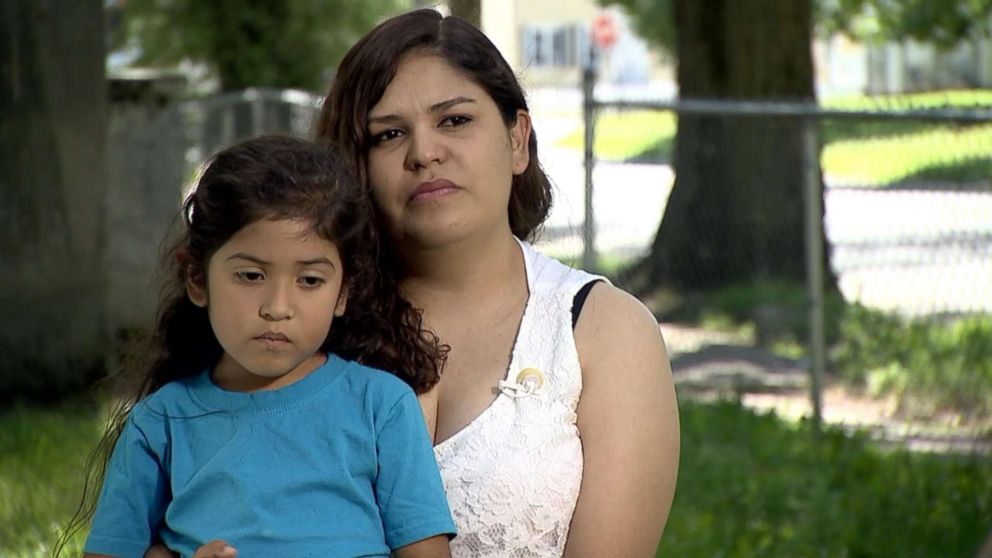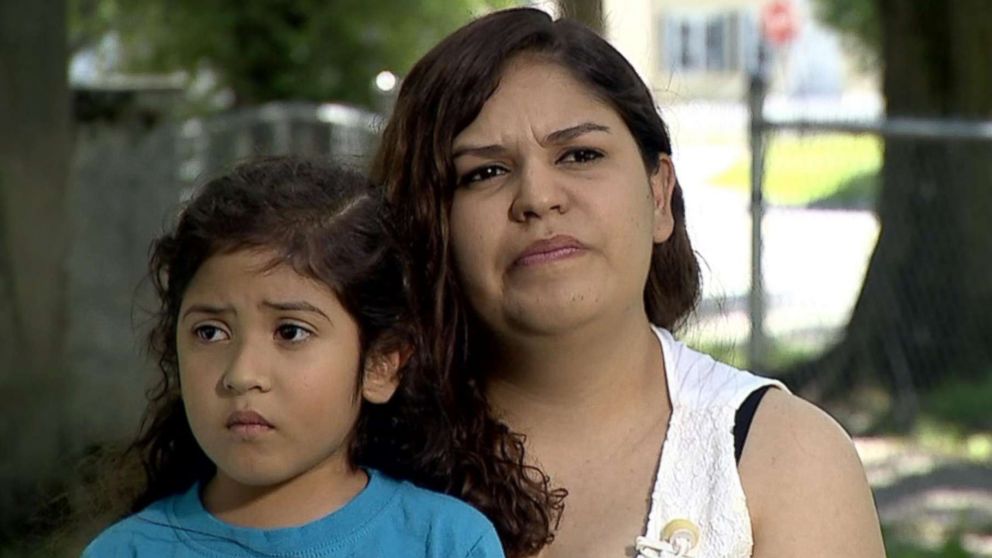'It’s inhumane what they’re doing to us as mothers,' says Guatemalan woman separated from 5-year-old daughter at US-Mexico border
A 22-year-old Guatemalan woman alleges that she and other mothers were treated inhumanely by immigration officers after she crossed the U.S.-Mexico border into Texas and was separated from her 5-year-old daughter for days.
The woman, named Jessica, crossed the Rio Grande near Roma, Texas, on May 22, after allegedly fleeing death threats in her home country, according to a declaration Jessica prepared and signed to share with the media.
After Jessica and her daughter, Rosalinda, were detained, they were driven to a place called the hielera, the document states. "Hielera" translates into English as "cooler" or "freezer."
Officials then put her and her daughter in a "very dirty cell," where the floors were covered in food, spilled water and juice, and was so crowded that the pair had to spend the night standing up, according to the document.
Jessica was interviewed the next night, during which an immigration official asked her, "Don't you know that we will take your daughter?" the declaration states.
"I told him that he could not take my daughter," Jessica states in the document. "He laughed at me and said, 'Dont you know the law?'"
The next day, an official told Jessica that she was to leave the "perrera," which translates to "dog pound," and appear in court without her daughter, the declaration states. It sounded like she would only be gone for a few hours, so Jessica attempted to quell her daughter's screams by promising she would be back soon, the document states.
"She tried to hug me but the official pulled her away," Jessica stated in the document.

Jessica, who was wearing a T-shirt and sweater, was allegedly told by a female immigration officer that she may only wear one of the clothing items to court, the declaration states. She chose the sweater, in case it got cold, and had to take her shirt off in front of several people, "including a line of men," the document states.
In court, a judge sentenced Jessica for the time she already served in the "perrera" and told her and other parents that they had to do everything they could to get out so they could get their kids back, the document states.
When Jessica returned to the perrera, she was not reunited with Rosalinda, the court document states. When she asked whether she was going to get her daughter back, an immigration officer replied, "Oh yes ... well, maybe," in a "sarcastic" tone and laughed at her, she said in the declaration.
Some of the mothers Jessica was crammed in the cell with stood at the door asking for their children, but the officials did not explain to them what was going on, the document states.
"Some said that I would been separated from my daughter forever," Jessica stated. "Others said that she would be returned to me."
At the Guatemalan consulate, Jessica was told her options were to be deported with her daughter, be deported while her daughter stayed with her friend or fight her case while she was in detention, which would result from her being separated from her daughter for months, according to the document.
Jessica had been separated from Rosalinda for at least three days when a female officer took her to an area that contained several children to see her. One of the officials allegedly told Jessica that children over the age of 7 were being separated from their parents but it seemed as if they were separating younger children as well, she stated in the document.
Six days after Jessica and Rosalinda were apprehended, they were driven to the South Texas Family Residential Center in Dilley, Texas, she said. Once they got there, Jessica called the friend who was going to receive her, and the friend informed her that she had received a call asking if she could receive Rosalinda alone because Jessica was being deported, the declaration states.
"I never consented to my daughter going there with me," Jessica stated in the document.
The mother described the journey from Guatemala as "very difficult" and the "worst thing" she expected she would suffer in her life.
"But my time in the perrera showed me that that was not the case," she wrote in the document. "Even in my country, which was a lot of poverty, I had never seen such horrible conditions."
Jessica even alleged that one officer told them they were receiving that kind of treatment to discourage more people from coming, instructing Jessica to tell her family what it was like so they would not come, the document states.
Jessica passed her credible fear interview for asylum, and she and Rosalinda are currently living in New Haven, Connecticut, with relatives, Katherine Murdza, a legal assistant to Jessica's attorney, told ABC News. Jessica still needs to file an asylum application and present her claim in court, Murdza said.
In an interview with ABC News, Jessica said in Spanish that the officers "tore away" her soul when they separated her and her daughter. The officers didn't tell Jessica where they were taking her 5-year-old, only saying that she would face charges for crossing the Rio Grande.
"I had told her that we would be going to the United States and that everything would be OK," she said. "That in no moment, we would ever be apart."
Rosalinda was "extremely traumatized" by the separation and wakes up "suddenly" asking if Jessica is going to leave, according to the document.
"Now I cannot leave her alone even for a minute. My daughter panics when I go into the bathroom," Jessica stated. "She wants me to stay at school with her. She did not act like this before."
Rosalinda told her mother that during their time apart she was "very afraid," Jessica told ABC News. When the mother and daughter finally reunited, Rosalinda was dirty, unable to speak, pale and fearful, Jessica said.
Jessica believes that Rosalinda has suffered "irreversible psychological damages" but hopes that she is able to "forget that hell" so she can "accomplish great things here," she said.

Jessica left Guatemala because she was receiving death threats from gang members, she said.
The separation of parents and children in detention is so prevalent that Murzda has heard about cases where a mother goes to take a shower and comes back to find her child is gone, the lawyer said. Murdza is no longer directly involved with Jessica's immigration case, she said.
During Jessica's time in detention, one mother from Guatemala had been separated from her son for seven days, one Honduran woman was unable to find her son, and when another mother from El Salvador was taken to see her daughter, they were unable to find the child, Jessica said.
By the time Jessica left the detention center, the children still hadn't been located she said, describing the separations as "inhumane."
"It's inhumane what they're doing to us as mothers," she said. "We come here seeking refuge, for a better future for our children. The United States is a country full of opportunity, and it's painful what they do to us."
Part of the detention center is called the dog pound "because it's like a cage," Jessica said.
"In the pound, you would sleep on the floor," she said. "Us moms who had to go to court, we would just sleep in the bathroom area."
In addition, the officers allegedly threw the detainees' food on the floor "as if we were dogs," Jessica stated in the declaration.
"The only food that they gave us was ham sandwiches and cookies," she said. "Some of the women were pregnant and fainted because of how crowded it was, the stress, and because there was not enough food and water."
A spokesman for U.S. Customs and Border Protection did not immediately respond to ABC News' request for comment.



